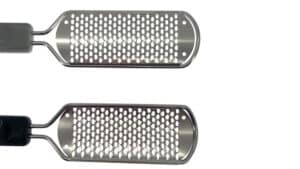
- April 4, 2023
- 1:54 pm
How Does Breast Reduction Surgery Affect Breastfeeding, and What Should Women Who Plan to Have Children in the Future Know About This?
Table of Contents
Introduction:
Breast reduction surgery is a popular surgical procedure for women who wish to reduce the size of their breasts. While this procedure can provide many benefits, such as improving self-esteem and reducing physical discomfort, it can also have an impact on breastfeeding. In this article, we will explore how breast reduction surgery affects breastfeeding, and what women who plan to have children in the future should know about this.

How Does Breast Reduction Surgery Affect Breastfeeding?
Breast reduction surgery can affect breastfeeding in several ways. During the surgery, the breast tissue is reshaped and removed, which can reduce the amount of milk-producing tissue. This can make it more difficult for women to produce enough milk to breastfeed their babies.
In addition, the surgery can also affect the nerves and milk ducts in the breasts, which can further impact milk production. Women who undergo breast reduction surgery may also experience a decrease in nipple sensitivity, which can make it more difficult to breastfeed.

What are the odds of breast reduction affecting Breastfeeding
Breast reduction surgery can affect a woman’s ability to breastfeed, although the extent of this impact can vary. The likelihood of breast reduction affecting breastfeeding depends on a variety of factors, including the type of surgery, the amount of breast tissue removed, the patient’s age, and other individual factors.
According to studies, up to 40% of women who have undergone breast reduction surgery experience some level of difficulty with breastfeeding. However, the percentage varies widely depending on the extent of the procedure and the patient’s individual characteristics. Women who have had a significant amount of breast tissue removed, especially from the central or lower part of the breast, are more likely to experience difficulties with breastfeeding.
The type of incision used during the surgery can also play a role in breastfeeding success. Inverted-T or anchor incisions, which are commonly used for larger reductions, may have a greater impact on the milk ducts and nerves that support breastfeeding. On the other hand, vertical or short-scar techniques may cause less disruption to these structures.
Age can also affect a woman’s ability to breastfeed after breast reduction surgery. Women who have the procedure at a younger age, before pregnancy and breastfeeding, may have a higher chance of experiencing difficulties due to the potential for damage to the milk ducts and nerves that support lactation.
Overall, the odds of breast reduction affecting breastfeeding are significant, but they can be mitigated by careful consideration of the surgical technique and the individual patient’s characteristics. Women who are planning to have children in the future should discuss their options with a qualified plastic surgeon to ensure that they make an informed decision about the procedure and its potential impact on breastfeeding.

What Should Women Who Plan to Have Children in the Future Know About This?
If you are planning to get breast reduction surgery and want to have children in the future, it is important to discuss your options with your surgeon. While breast reduction surgery can have an impact on breastfeeding, there are still many women who are able to breastfeed successfully after the surgery.
Your surgeon can help you understand the risks and benefits of the surgery, as well as how it may impact your ability to breastfeed. They can also provide you with information on alternative procedures that may be more suitable if you plan to breastfeed in the future.
Recovery and Post-Operative Care:
Recovering from breast reduction surgery can take several weeks. During this time, it is important to follow your surgeon’s post-operative care instructions carefully to ensure proper healing and minimize the risk of complications.
Some tips for a smooth recovery include:
- Getting plenty of rest and avoiding strenuous activities
- Wearing a supportive bra to reduce swelling and promote healing
- Taking pain medication as prescribed by your surgeon
- Avoiding smoking and alcohol, as these can slow down the healing process
Common Complications:
Like any surgery, breast reduction surgery comes with risks and potential complications. Some common complications include:
- Infection
- Bleeding
- Scarring
- Numbness or loss of sensation in the nipples or breasts
If you experience any of these complications, it is important to seek medical attention immediately. Your surgeon can provide you with guidance on how to manage these complications and ensure a safe and successful recovery.
Conclusion:
Breast reduction surgery can provide many benefits, but it is important to understand its potential impact on breastfeeding. If you considering to have children in the future, it is important to discuss your options with your surgeon and understand the risks and benefits of the surgery.
By following your surgeon’s post-operative care instructions and seeking medical attention for any complications, you can minimize the risks and ensure a safe and successful recovery. With the right care and support, many women who undergo breast reduction surgery are able to breastfeed successfully and enjoy all the benefits of motherhood.










